Can You Use Pickeling Spices for Corned Beef
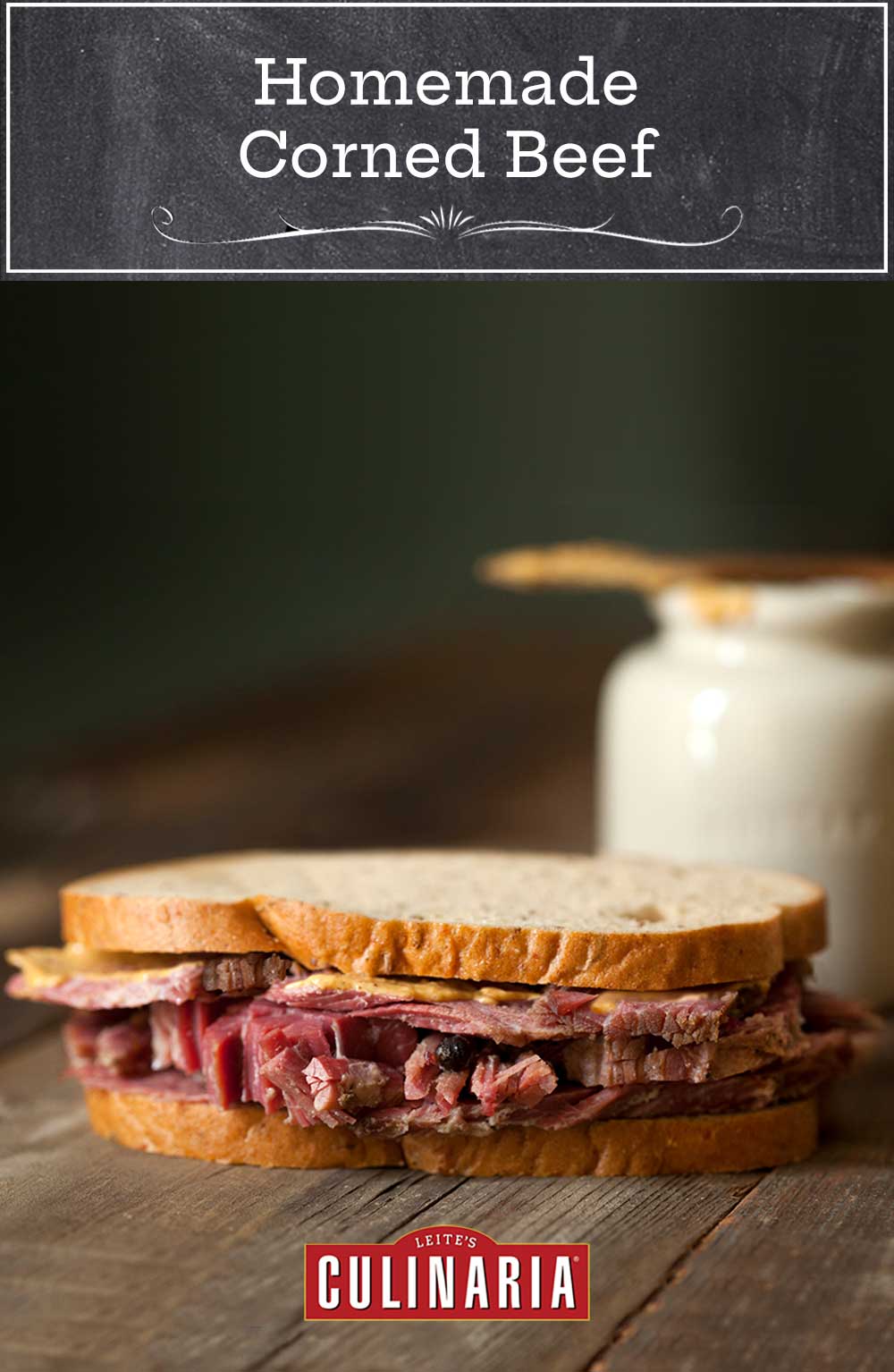
Homemade corned beef, and its corned beef seasoning mix, is crazy easy to make. It's essentially brisket that's given a makeover by letting it linger in an easy brine with spices and then slowly braised until falling-apart tender. Here's how to make it (including a slow-cooker variation).
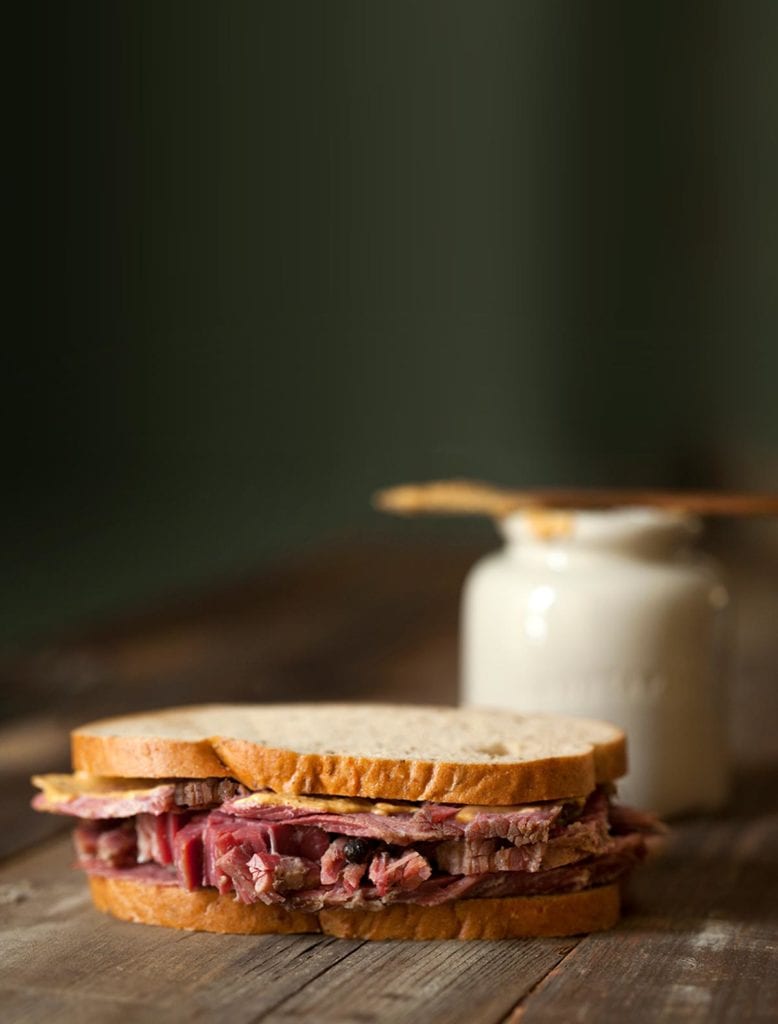
Homemade corned beef sort of defines Saint Patrick's Day. And if you've heard of it but not experienced it, or maybe downed a few sandwiches it but still aren't exactly certain what corned beef is, it's essentially brisket that's lingered in a brine solution of corned beef seasonings for a few days. It becomes a little salty and a little redolent of spices and, as it turns out, it may be good for you.
See, its brine solution is essentially a pickling liquid. And you've certainly heard the buzz in recent years about how healthful pickled things are, yes? Ergo, the only logical thing to do is pickle and consume copious quantities of corned beef. Right?! Or if you don't buy that, consider that once a year, we're all Irish. Kindly note, you'll need to start the corned beef about a week before you intend to sit down at the table. #worthit–David Leite
Homemade Corned Beef FAQs
What is first cut brisket?
A whole primal brisket weighs 10 to 16 pounds and makes up two subprimal cuts that are divided by a layer of fat. The 5-to-9-pound "first cut," sometimes called the "flat cut," is one complete muscle and is relatively lean. The 5-to-7-pound "second cut," aka the "point cut" contains more fat, or deckle, and sits on top. This recipe calls for first cut, but I've successfully made it with both cuts.
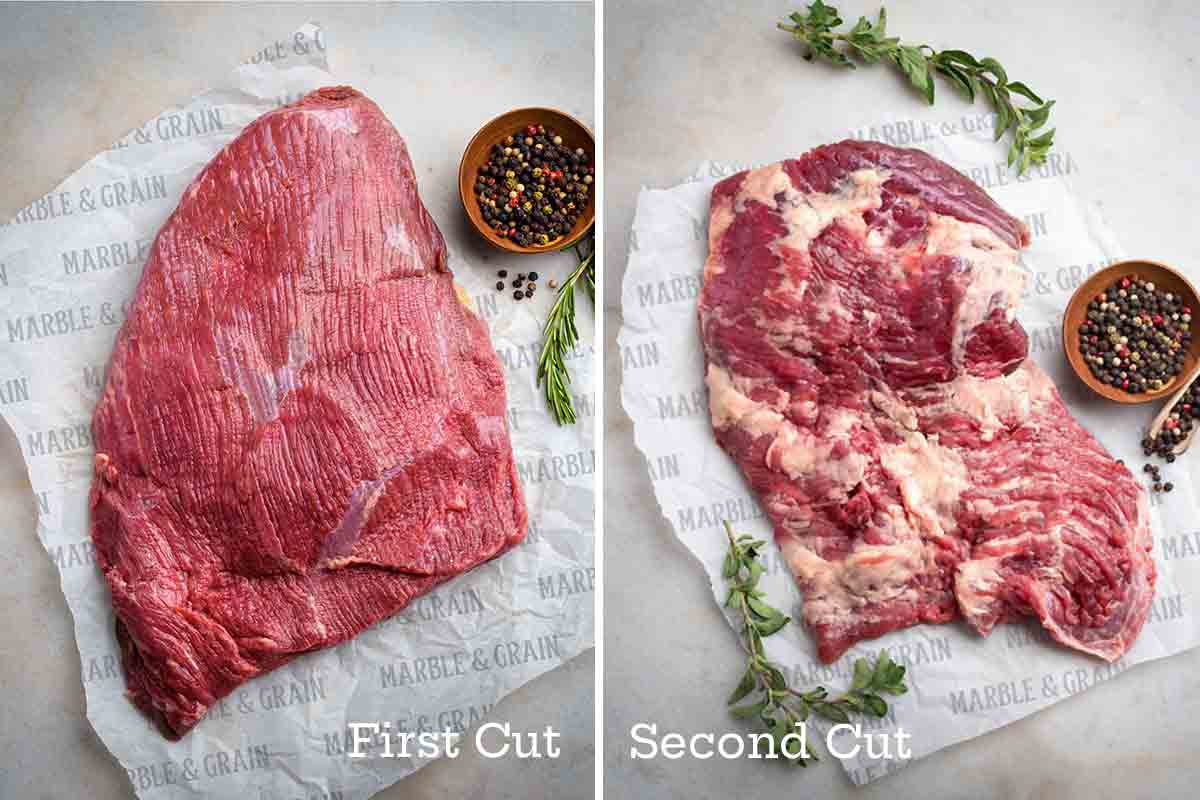
What is pink salt?
Pink salt is a curing salt containing nitrite. It does a few special things to meat: It changes the flavor, preserves the corned beef's red color, prevents fats from developing rancid flavors, and–most importantly in home curing–prevents many bacteria from growing.
It's sold under various brand names, including tinted cure mix (or T.C.M.), DQ Curing Salt, Prague Mix #1, Curing Salt #1, and Insta-Cure Salt #1. Do not buy Insta Cure #2, which is used for air-cured meats that aren't cooked, such as pepperoni, hard salami, genoa salami, prosciutti hams, dried farmers sausage, capicola, and the like. And don't confuse this pink salt with Himalayan pink salt, which is entirely different.
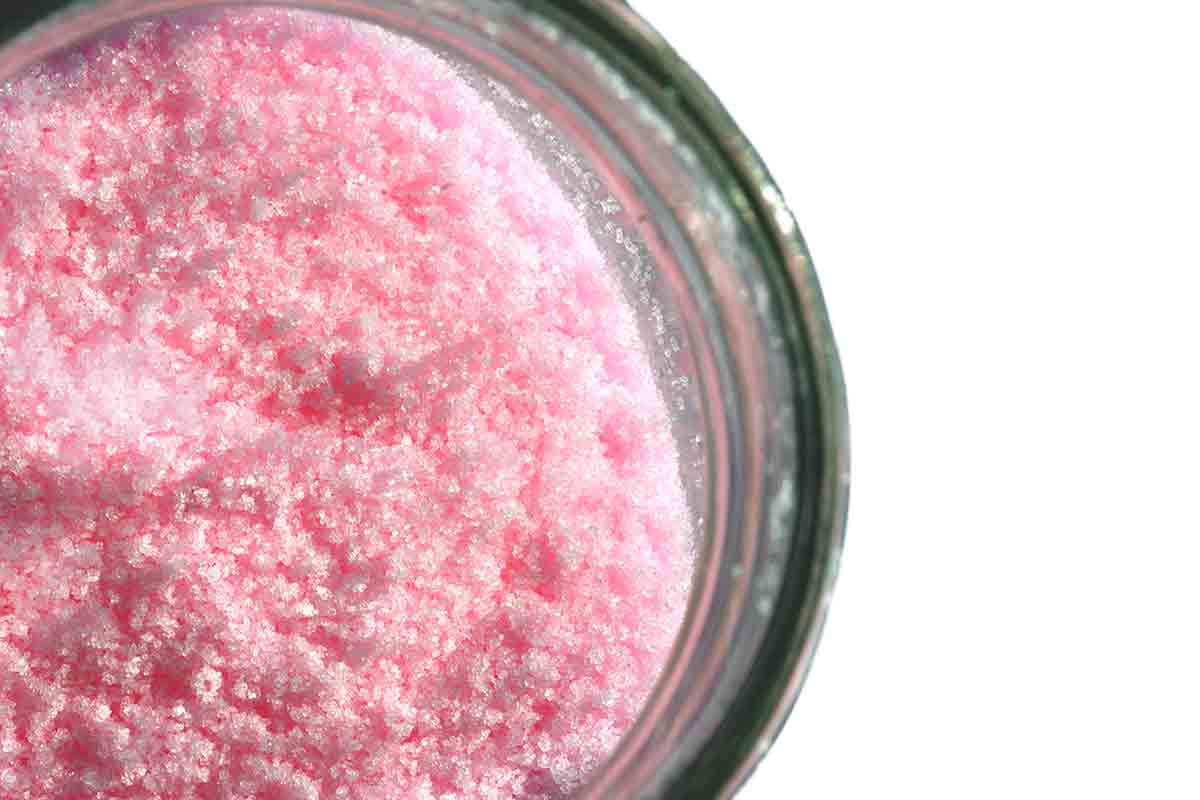
How can I make this into corned beef and cabbage?
To make corned beef with cabbage and potatoes, first, render the fat from some bacon that you've cut into matchstick-size strips or any size dice in a large saucepan or pot over medium heat. Toss in some large wedges or large chunks of green cabbage and cook, turning as needed, until the edges are lightly browned. This will impart a little extra flavor oomph to the cabbage.
Add some of the reserved cooking liquid from the corned beef to the pot. Then toss some chunked potatoes and the sliced corned beef in with the cabbage, cover, and cook until the cabbage is tender. (If you prefer the potatoes not pick up any cabbage flavor or color, boil them separately in salted water.) Either way, cover and cook until the cabbage and potatoes are tender. The liquid that steams the cabbage then becomes a delicious sauce into which you can, if you like, stir a tablespoon of Dijon mustard.
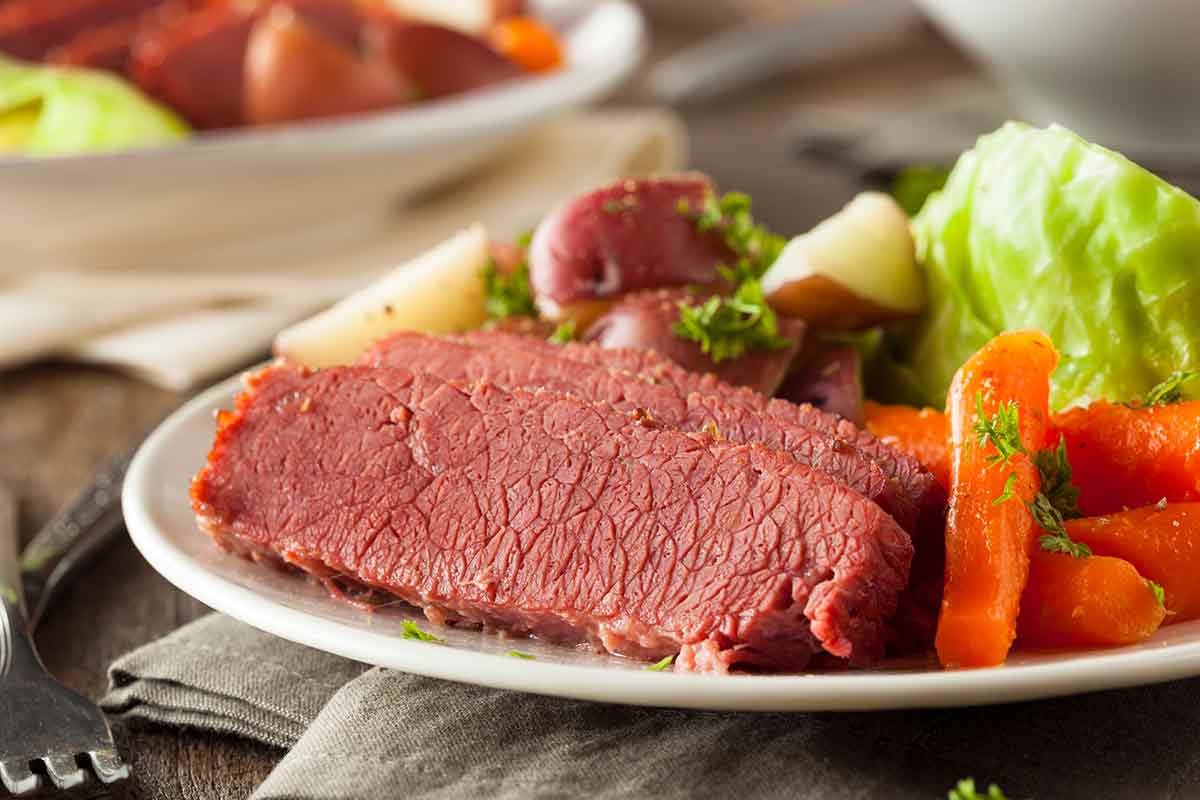
How can I cook this in a slow-cooker?
Place the brined brisket inside your slow cooker and add enough water to cover the meat. If the entire brisket won't fit, cut off a smaller portion that will fit and reserve the remaining brined brisket. Add 2 tablespoons of the corned beef seasoning pickling mix to the slow cooker and cook on low until the brisket is fork-tender, about 7 hours. Remove it from the cooking liquid, which can be reserved for serving if desired.
Slice the corned beef and serve it warm or cool it, wrap it, and refrigerate it for up to a week. Curious to hear more about coaxing the perfect corned beef from your slow cooker? Check out what our tester Jackie G. had to say in her TC comment below. (Spoiler alert: She turned her leftover brined brisket into homemade pastrami, natch.)
What's in corned beef seasoning mix?
Corned beef seasoning mixes, or pickling spices, vary from cook to cook. But it's safe to say that black peppercorns, mustard seeds, coriander seeds, allspice, mace, cinnamon, bay leaf, clove, and ginger will be part of it. Ours adds crushed red-pepper flakes for a wee bit of heat.
Homemade Corned Beef
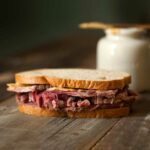
Homemade corned beef is crazy easy to make. It's essentially brisket that's given a makeover by letting it linger in an easy brine with spices and then slowly braised until falling-apart tender. Here's how to make it (including a slow-cooker variation).
10 servings | 4.5 lbs
309 kcal
-
Slow cooker (if following the slow cooker method)
For the pickling spice
- 2 tablespoons black peppercorns
- 2 tablespoons mustard seeds
- 2 tablespoons coriander seeds
- 2 tablespoons crushed red pepper flakes
- 2 tablespoons allspice berries
- 1 tablespoon ground mace
- 2 small cinnamon sticks crushed or broken into pieces
- 2 to 4 bay leaves crumbled
- 2 tablespoons whole cloves
- 1 tablespoon ground ginger
For the brine solution
- 1 gallon water
- 2 cups Morton kosher salt (or 3 1/3 cups/450 g Diamond Crystal kosher salt)
- 1/2 cup granulated sugar
- 2 teaspoons pink salt (see FAQs)
- 3 garlic cloves minced
- 2 tablespoons pickling spice (above) (see above recipe or use store-bought)
- One (5-pound) well-marbled (first-cut) beef brisket
Make the pickling spice
-
In a small, dry skillet over medium heat, toast the peppercorns, mustard seeds, and coriander seeds until the spices are lightly toasted. Carefully turn them onto a cutting board and carefully smash them using the flat side of a chef's knife to crack them, being careful to not let the seeds roll all over your counter and onto your floor.
-
Scrape the cracked spices into a large plastic container or glass jar or other nonreactive container and add the remaining ingredients. Stir until completely combined. Cover tightly.
Make the brine solution
-
In a pot that's just large enough to hold the brisket, combine the water, salt, sugar, pink salt, garlic, and 2 tablespoons pickling spice. Bring to a simmer, stirring until the salt and sugar dissolve. Remove the pot from the heat, let the brine cool to room temperature, and then refrigerate until the brine is completely chilled. For a quick chill: Bring 1/2 gallon of water to a simmer, add the brine ingredients, and stir until dissolved. Slide the pot off the heat and add 1/2 gallon of ice and water. Make sure the water is cool before adding the brisket.
-
Place the brisket in the chilled brine and weight it with a plate to keep it submerged. Refrigerate for 5 days, flipping the brisket once or twice.
-
Remove the brisket from the brine solution, discarding the brine. Rinse the brisket thoroughly under cool running water. (Don't worry, you're just rinsing the brine solution from the surface of the brisket. The brine will continue to permeate the beef and work its considerable magic.)
Cook the corned beef
-
To make the corned beef in your slow cooker, see the Slow Cooker Variation below.
To make the corned beef on the stovetop, reach once again for a pot just large enough to hold the brisket. Place the brined brisket inside and add enough water to cover the meat. Add 2 tablespoons of pickling spice and bring to a boil, then reduce the heat, cover, and gently simmer for about 3 hours, or until the brisket is fork-tender. You want to make certain that there's always enough water to cover the brisket. You may need to occasionally replenish the water if it gets too low.
-
When the corned beef is done, remove it from the cooking liquid, which can be reserved, and place it on a cutting board. Slice the corned beef and serve it warm, with cabbage and potatoes if desired (see the Variation in the FAQs) or cool it, wrap it, and refrigerate it for up to a week to use in this Reuben sandwich. It's also not too shabby in corned beef hash. You can dribble the cooking liquid over the cabbage and vegetables or cover and refrigerate the liquid and rewarm it along with your leftover corned beef.
Serving: 1 portion Calories: 309 kcal (15%) Carbohydrates: 1 g Protein: 23 g (46%) Fat: 23 g (35%) Saturated Fat: 7 g (44%) Polyunsaturated Fat: 1 g Monounsaturated Fat: 11 g Cholesterol: 84 mg (28%) Sodium: 1898 mg (83%) Potassium: 463 mg (13%) Vitamin C: 42 mg (51%) Calcium: 11 mg (1%) Iron: 3 mg (17%)
David Says

This homemade corned beef recipe is so damn good, it's almost enough to make me consider converting back to Catholicism. The One and I absolutely love it. I've been making this recipe from Michael Ruhlman for years, and of course, I whip it up every St. Patty's Day. (The first photo below is me going rogue. Instead of using first-cut brisket, I used the uber-fatty second cut, as it was all I had in the freezer. I trimmed much of the fat cap. We'll see how it turns out. Stay tuned.) Over the years, I've played around a little with the brine ingredients: more bay leaves, a bit more ginger, more peppercorns. I don't particularly like corned beef and cabbage, so The One and I go straight to corned beef sandwiches or Reuben sandwiches and, naturally, corned beef hash. When the weather warms up—will it ever happen, God? (I told you I get really religious-y around corned beef-time)—I want to make pastrami, which is really just a smoked cousin of corned beef.
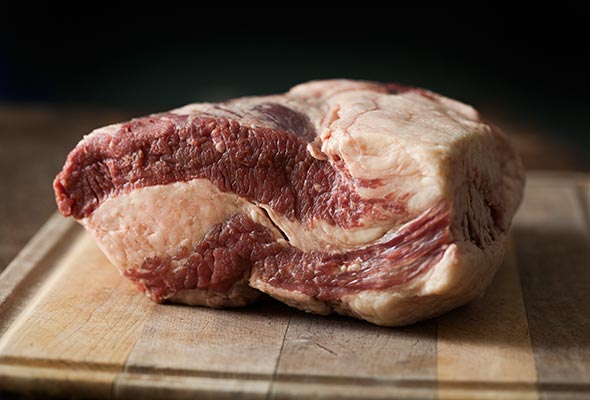
Well, using the second cut proved to be a wise move. You can always get rid of fat, but you can't add it. Judicious trimming prior to brining and careful carving after the meat was cooked yielded juicy, tender, memorable corned beef--the best I've ever made (below). So from here on out, it's second cut for us.
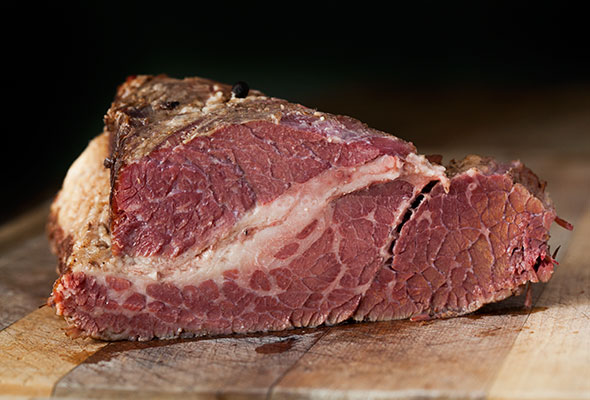
Recipe Testers' Reviews
Originally published March 14, 2011
Recipe © 2005 Michael Ruhlman. Photo © 2005 David Leite. All rights reserved. All materials used with permission.
![]() If you make this recipe, snap a photo and hashtag it #LeitesCulinaria. We'd love to see your creations on Instagram, Facebook, and Twitter.
If you make this recipe, snap a photo and hashtag it #LeitesCulinaria. We'd love to see your creations on Instagram, Facebook, and Twitter.
Source: https://leitesculinaria.com/5912/recipes-homemade-corned-beef.html
0 Response to "Can You Use Pickeling Spices for Corned Beef"
Post a Comment